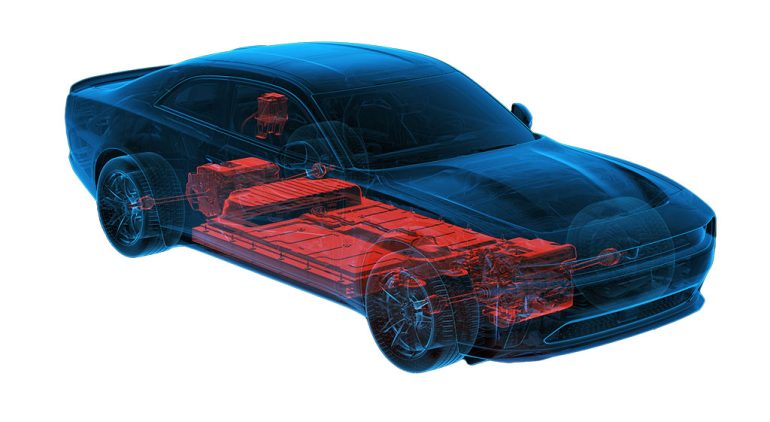Automotive

In an exciting push toward advancing electric vehicle technology, Stellantis has announced plans to roll out a demonstration fleet of EVs equipped with cutting-edge solid-state batteries from U.S. startup Factorial. This groundbreaking move, set to take place by 2026, is part of Stellantis’ broader strategy to lead the electric mobility revolution while addressing key challenges that have stymied widespread EV adoption.
The Promise of Solid-State Battery Technology
Solid-state batteries represent the next major leap in EV innovation. Unlike traditional lithium-ion batteries, which rely on liquid electrolytes, solid-state batteries use solid electrolytes, offering several distinct advantages. These benefits include:
- Enhanced safety: Solid-state batteries are less prone to fire risks, addressing one of the major concerns surrounding conventional lithium-ion battery technology.
- Lighter weight: With no liquid components, these batteries can reduce vehicle weight, improving energy efficiency.
- Extended range: Solid-state batteries promise longer driving ranges on a single charge, a key factor for consumers grappling with “range anxiety.”
- Cost efficiency: By eliminating costly materials like cobalt and simplifying the overall design, solid-state batteries could drive down the cost of EV production in the long run.
These attributes have led to solid-state batteries being viewed as a game-changer in the EV space, capable of significantly boosting vehicle range and lowering costs. However, despite their promise, developing solid-state batteries at a scale suitable for mass production has been a complex challenge for automakers.
Stellantis and Factorial’s Partnership
Stellantis, the world’s fourth-largest automaker, first partnered with Factorial in 2021 through a $75 million investment, signaling its confidence in the startup’s battery technology. The new demonstration fleet represents the next phase of this collaboration, aimed at testing and validating solid-state batteries in real-world driving conditions.
This fleet will feature Factorial’s innovative solid-state batteries installed in Dodge Charger Daytona vehicles, built on Stellantis’ STLA Large platform. The STLA Large platform underpins some of Stellantis’ biggest and most popular models across its brands, including Jeep, Dodge, Chrysler, Alfa Romeo, and Maserati. It’s a multi-energy platform designed to support high-performance and high-volume electric SUVs and cars, which makes it the ideal testing ground for the cutting-edge battery technology.
Preparing for Commercialization
Launching a demonstration fleet is a significant step toward the commercialization of solid-state batteries. While many automakers have struggled to develop solid-state technology at scale, Stellantis’ move demonstrates its commitment to making the breakthrough happen. The real-world testing of Factorial’s batteries will provide Stellantis with crucial data on how the technology performs in varied driving conditions, how it affects vehicle performance, and its impact on EV range and charging times.
Ned Curic, Stellantis’ Chief Engineering and Technology Officer, highlighted the significance of this step: “By integrating Factorial’s innovative battery solution into the STLA Large platform, we are validating its potential to enhance our electric vehicle lineup, ensuring customers benefit from improved performance, longer driving ranges, and faster charging times in the coming years.”
A Solid Future for EVs
Stellantis has been making aggressive moves toward electrification as part of its broader Dare Forward 2030 plan, which outlines a vision for achieving 100% of its European sales and 50% of U.S. sales from EVs by 2030. The success of solid-state batteries could significantly accelerate the company’s ability to meet these ambitious goals.
The STLA Large platform is expected to support up to two million vehicles globally, making it a major player in Stellantis’ electrification plans. As Stellantis ramps up its production capabilities and tests the viability of solid-state batteries, it could open the door for solid-state technology to become a standard feature across its EV lineup.
While there are still technical challenges to overcome, the Stellantis-Factorial partnership represents a promising step toward a more sustainable, cost-efficient, and high-performance future for electric vehicles. If solid-state batteries can be successfully scaled, they could be the key to unlocking the next wave of EV adoption—delivering longer ranges, faster charging times, and safer vehicles to consumers worldwide.
Stellantis’ upcoming fleet of EVs equipped with Factorial’s solid-state batteries is poised to be a game-changer in the electric vehicle market. As this promising technology continues to develop, the partnership between Stellantis and Factorial could lead to significant breakthroughs, pushing the industry closer to a future where electric cars are more affordable, reliable, and widely adopted.
With the 2026 timeline in place, all eyes will be on Stellantis as they take the next steps in reshaping the electric vehicle landscape with solid-state innovation.
FOLLOW US TODAY:
